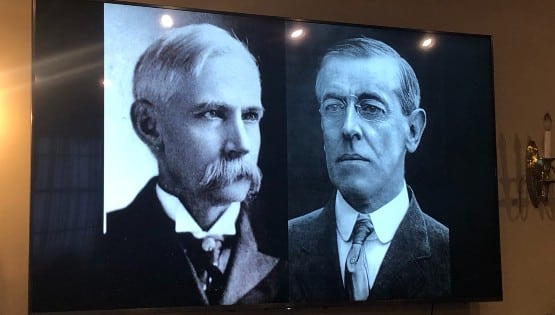Pair cite state Medicaid-funding issue in letter to Webb, Warner
Staff Report
News Tips: [email protected]

After highlighting Virginia’s existing Medicaid financial challenges, Howell and Putney noted in their letter to the senators that because the Senate bill greatly expands Medicaid eligibility, “states will still be saddled with significant cost increases to meet these new obligations beyond the next five years.”
“A conservative estimate of the cost to expand Virginia’s Medicaid eligibility to 133 percent of the federal poverty level indicates that Virginia will need to prove $920 million more from 2017 to 2019 cumulatively,” the House leaders wrote, “and these staff estimates may be “significantly understated.”
The letter in its entirety is republished below:
As our federal representatives in the United States Senate, we write you with significant concern about the impact that the Obama-Reid health care overhaul will have on the Commonwealth. The Senate Leadership has gone to great lengths to claim that their legislation is deficit-neutral, a point that is debatable. However, what is left unstated is the fact that the measure pushes the costs off to states that are already struggling to meet their current budgetary obligations.
Virginia’s Medicaid program costs are expected to grow by 11 percent in Fiscal Year 2011 and 8 percent in Fiscal Year 2012. In order to meet Medicaid’s budgetary requirements for the 2010-12 biennium, Virginia will need an additional $1.9 billion in state funds. Almost $1.6 billion of this amount is required just to backfill the loss of federal matching funds in FY 2011 and FY 2012. Another $300 million is needed to meet other statutory and regulatory requirements of the program.
In order to reduce the ranks of the uninsured, the Obama-Reid plan expands Medicaid to cover an additional 15 million Americans, effectively the largest expansion of the Medicaid program since it was established. As you well know, Medicaid is funded partly by states and partly by the federal government. Despite the enhanced federal matching funds to expand Medicaid, states will still be saddled with significant cost increases to meet these new obligations beyond the next five years. While Senator Reid may tout his bill as deficit-neutral in the near term, the fine print shows that it will be the states that will be left holding the bag down the road.
A conservative estimate of the cost to expand Virginia’s Medicaid eligibility to 133 percent of the federal poverty level indicates that Virginia will need to provide $920 million more from 2017 to 2019 cumulatively. In 2019 alone, our increased costs of expanding Medicaid could be almost $470 million annually.
An analysis by our staff indicates that this estimate may be significantly understated, because it assumes a level of growth in the program that is considerably less than Virginia’s historical growth rates. In addition, the estimate assumes that only about two-thirds of those eligible will enroll in the program, despite the individual health insurance mandate contained in the reform plan.
Unfortunately, at the same time that the plan expands the pool of those eligible for Medicaid, it significantly cuts Medicaid and Medicare payments to hospitals, particularly those that serve low-income patients. By continuing to squeeze already struggling hospitals and providers, the Obama-Reid plan puts added strain to our national health care system and puts in serious jeopardy the high quality of care that Americans expect to receive. One estimate indicates that 15 percent of the amount spent by commercial payers on hospital and physician payments is attributable to cost shifting due to low Medicare and Medicaid payments. Additional payment cuts by public providers will inevitably raise health insurance costs to everyone.
By shifting costs to the states, this plan represents the ultimate unfunded mandate. As you are aware, Virginia and other states like it, are in the midst of a difficult budget session. As an unintended result of the current plan being discussed in the United States Senate, the General Assembly could be faced with the unenviable choice of raising taxes, cutting essential services or both. Such is the concern from state houses across the country that no less than nine Democratic governors have spoken up about the reduction in Medicaid and Medicare funding. Governor Phil Bredesen of Tennessee went so far as to call it “the mother of all unfunded mandates.”
We would like to close with a final observation. According to a December Rasmussen poll, 54% of Virginians stand opposed to the Obama-Reid health care plan. In light of the strong concerns expressed here and the significant opposition amongst Virginians, we respectfully ask that you urge caution amongst your colleagues and oppose the current bill under consideration.
There are serious-minded reforms that would address the rising cost of health care in this country and improve our health care system, including association health plans, expanding health savings accounts and medical malpractice reform. Unfortunately, those reforms are absent from this bill. We look forward to continuing to work with you to achieve effective health care reform that all Virginians can support.
Sincerely,
William J. Howell
Speaker, Virginia House of Delegates
Lacey E. Putney
Chairman, House Appropriations Committee
A copy of this letter is available online at www.williamjhowell.org.











